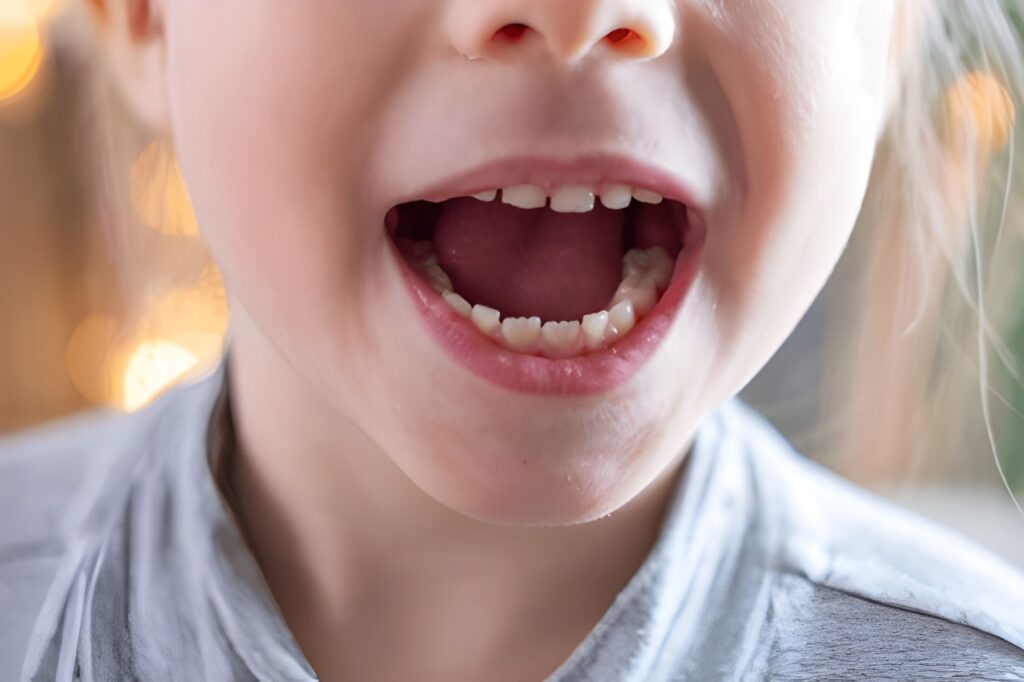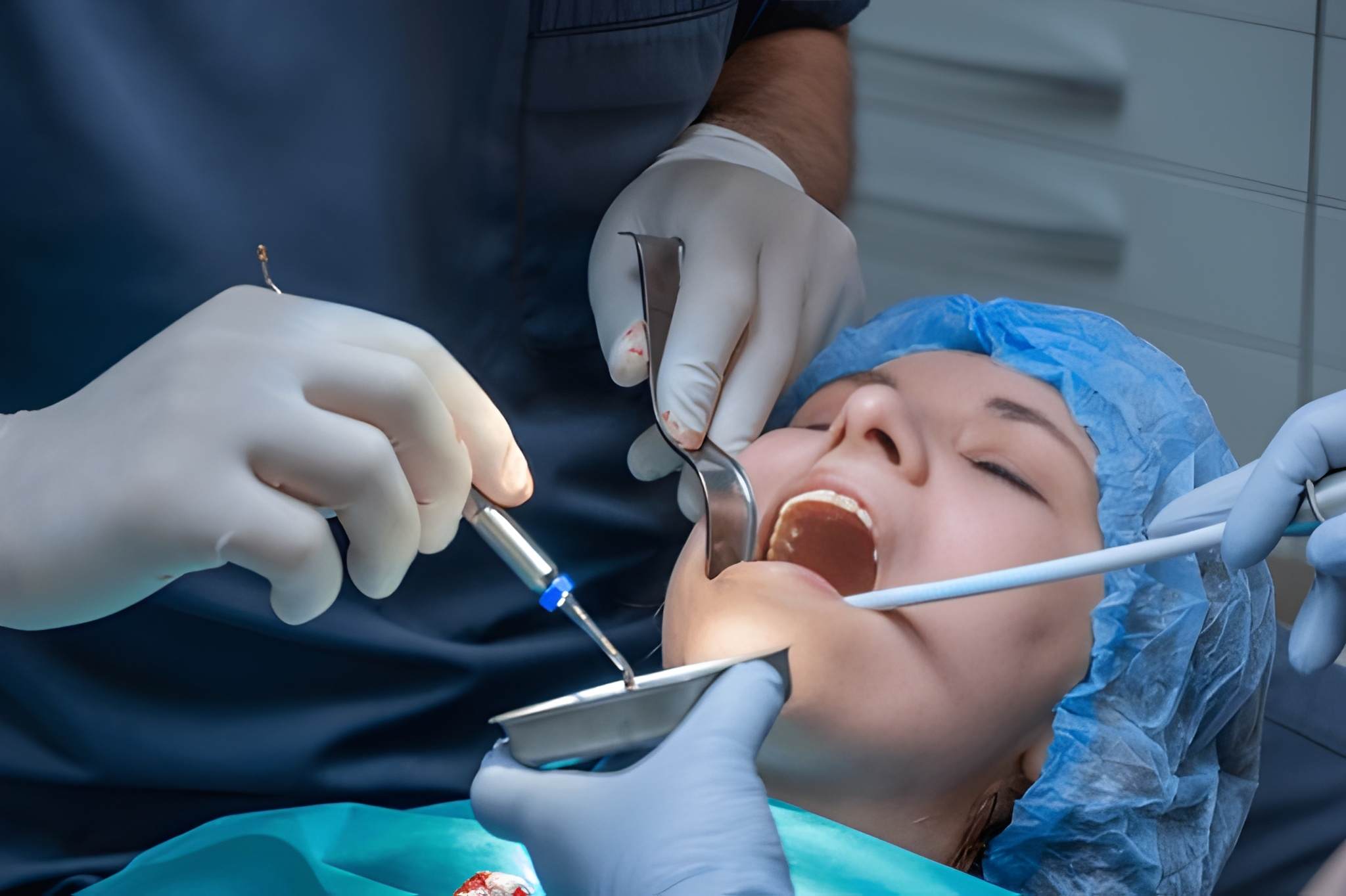Spreading your child’s first tooth across their gums is a thrilling milestone. Not only do those initial teeth make your little one’s smile even more adorable — they’re also crucial for chewing, talking, and growing a healthy jaw. Learning baby teeth care early on lays the groundwork for a lifetime of healthy, robust smiles.
This guide explains when do baby teeth come in, the childrens tooth development stages, and practical dental care tips for infants. You’ll also learn how to clean baby teeth and ways of protecting toddler teeth from decay, all guided by the professional standards practiced at Dental Scotland.
Understanding the Importance of Baby Teeth Care
Although baby teeth (also primary teeth) will fall out, they play a vital role in your child’s early development and oral health. Baby teeth allow your child to chew food correctly, achieve clear speech, and have proper spacing for the future adult teeth.
Why Baby Teeth Matter
- Chewing and nutrition: Effective chewing supports digestion and allows your child to receive nutrients from different foods.
- Speech development: Teeth assist in creating words properly.
- Guiding permanent teeth: Baby teeth reserve space for permanent teeth to come in aligned properly.
- Self-confidence and smile: Good teeth foster self-confidence and a beautiful smile, even at a young age.
Baby teeth can rot early, become infected, or influence the development of adult teeth later on if proper care is neglected.
When Do Baby Teeth Come In? — Timeline and Eruption Chart
Most children develop their first tooth at six months of age, although this is not strictly precise. Teething lasts until the child is approximately three years old, when all 20 baby teeth have typically erupted.
Typical Eruption Timeline:
| Tooth Type | Eruption Age (months) | Shedding Age (years) |
| Lower central incisors | 6–10 | 6–7 |
| Upper central incisors | 8–12 | 6–7 |
| Upper lateral incisors | 9–13 | 7–8 |
| Lower lateral incisors | 10–16 | 7–8 |
| First molars | 13–19 | 9–11 |
| Canines (cuspids) | 16–22 | 10–12 |
| Second molars | 25–33 | 10–12 |
By age 6–12, your child will be in the mixed dentition stage, where there are both baby and adult teeth present at the same time — a critical stage in childrens tooth development stages.
Childrens Tooth Development Stages Explained
Knowing these stages assists parents in recognizing what is normal and what may require dental care.
- Gum phase (0–6 months): Teeth haven’t erupted yet, but buds are developing under the gums.
- Eruption phase (6 months–3 years): Baby teeth start coming in, typically beginning with the lower front teeth.
- Mixed phase (6–12 years): Baby teeth will fall out gradually while permanent teeth come through.
- Full adult dentition (about 12+ years): Permanent teeth (to 32) develop fully.
Throughout all these phases, routine check-ups and proper baby teeth care prevent cavities, crowding, and later orthodontic complications.
Early Visits to the Dentist

Your child should see the dentist by their first birthday or six months after their first tooth has erupted. Early visits enable your dentist to:
- Check erupting teeth for initial signs of decay
- Address teething pain and its management
- Offer infant dental care advice
- Apply preventive measures such as fluoride varnish or sealants
In Dental Scotland, the visits in early childhood are gentle and informative experiences — meant to put your child at ease while teaching parents the best ways of care.
Step-by-Step Guide to How to Clean Baby Teeth
Cleaning must even start before teeth erupt. Here’s how you can have a clean, healthy mouth from the beginning:
Before Teeth Erupt:
- Gently wipe your baby’s gums with a damp, clean cloth after feedings.
- Do not put your baby to sleep with bottles filled with milk or juice.
After Teeth Emerge:
- Use a soft-bristled baby toothbrush.
- Brush morning and night.
- For infants less than 2 years, use a rice-sized amount of fluoride toothpaste.
- For children between 3–6 years, use a pea-sized fluoride toothpaste.
- Brush all surfaces gently with tiny circular strokes.
Show your child how to spit out toothpaste, not swallow.
Regular brushing and monitoring are important. The majority of kids require parental assistance until at least the age of 6–8 to be able to brush properly.
Developing Healthy Oral Hygiene Habits Early
Kids learn easiest from observation. Demonstrate how to brush by brushing in parallel to them. Brushing with fun music, fluorescent toothbrushes, or brushing charts works.
Tips to Develop Routine:
- Be consistent with brushing for two minutes, twice a day.
- Prompt brushing after sweet treats.
- Praise or sticker charts can be used to reward consistency.
- Floss carefully once teeth begin to touch.
Small habits form a lifetime of hygiene — the very essence of healthy baby teeth care.
Guarding Toddler Teeth Against Decay
Since the enamel on baby teeth is thinner than on permanent teeth, they are easier to decay. Cavities in baby teeth can spread rapidly and may even infect the adult teeth forming under them.
Most Common Reasons for Tooth Decay in Toddlers:
- Prolonged bottle-feeding or bedtime milk bottles
- Regular sweet snacks or beverages
- Poor brushing or infrequent dental check-ups
- Passing bacteria from child to parent (sharing spoons or pacifiers)
Prevention Strategies:
- Restrict sugary beverages and sticky foods
- Replace juice with water in between meals
- Don’t share eating utensils with your baby
- Schedule regular dental check-ups
Employ fluoride toothpaste and make your child consume fluoridated water
Implementing these measures for toddler tooth protection from decay can be very effective in preventing cavities and infections.
The Place of Fluoride in Baby Tooth Care
Fluoride makes teeth stronger and resistant to cavities. It’s available in toothpaste, tap water, and professional dental cleaning.
Why Fluoride Is Important:
- Re-mineralizes early tooth decay signs
- Makes enamel resilient to acid wear
- Delivers long-term cavity protection
Find out if your community water supply is fluoridated. If it’s not, check with your dentist about fluoride supplements or in-office cleaning.
Nutrition and Oral Health
Nutrition plays a crucial role in maintaining healthy gums and teeth.
Best Foods to Build Strong Baby Teeth:
- Fruits & vegetables: Fiber and natural vitamins help keep gums healthy.
- Dairy foods: Milk, yogurt, and cheese supply calcium and phosphates.
- Whole grains: Help overall health and restrict sugar surges.
- Water: Cleans the mouth and slows acidity.
Food to Restrict:
- Sweet juices and soft drinks
- Sticky sweets
- Processed snack foods
- Regular sipping of milk or juice from bottles
Good nutrition supports dental care advice for babies and encourages robust tooth enamel.
What to Expect During Pediatric Dental Visits
The first few dental visits for a child are gentle and preventive. Here’s what usually happens:
- Visual examination: Examining gums and teeth for normal eruption.
- Counting teeth: Monitoring the teething process.
- Professional cleaning: Plaque removal.
- Preventive care: Fluoride or sealants as necessary.
- Parental guidance: Individualized baby teeth care instructions and dietary advice.
Dental professionals make the experience pleasant to establish trust and lifetime comfort with oral health visits.
Common Early Childhood Dental Issues
1. Early Childhood Caries (Baby Bottle Tooth Decay)
Develops due to excessive exposure to sweet liquids such as milk or juice in bottles, particularly before bedtime.
2. Teething Gum Irritation
Rub gums with a clean finger or a cold teething ring to ease irritation.
3. Thumb Sucking or Pacifier Habits
These are normal at first but need to be discontinued by age 3 to prevent tooth misalignment.
4. Retarded Tooth Eruption
If there are no teeth by 12–15 months, have your dentist rule out any underlying problems.
Fostering A Lifetime Of Healthy Smile
Parents have the greatest impact on their child’s lifelong oral health. The early years are not all about baby teeth — they set the stage for robust, confident smiles well into adulthood. By developing healthy oral care habits at an early age, you’re not only avoiding cavities; you’re learning responsibility, self-care, and body awareness.
Simple daily habits have a lasting impact. Brushing twice a day with a soft brush and an amount of fluoride toothpaste suitable for their age educates children about cleanliness and routine. A well-balanced diet — not indulging in sugary snacks, providing calcium-rich foods, and promoting water over juice — builds strong developing teeth and gums. These habits educate children about how daily choices impact their health.
Just as vital are periodic dental visits. Early visits enable the dentist to keep abreast of tooth growth, detect alignment or cavity issues, and advise parents on cleaning. A child who is taken to the dentist regularly at a young age matures with the perception of dental care as usual and non-threatening, lessening fear or apprehension later in life.
Parents who exhibit good habits themselves — brushing together, praising good oral hygiene, and respecting appointments — establish a culture of oral health as important and esteemed. Investing time and energy now means your child not only has a healthy smile, but also has confidence in his or her looks and habits that promote overall health. These small, regular steps really inspire a lifetime of healthy smiles.
Conclusion: Lifelong Dental Health through Professional Support
Baby teeth care is more than brushing daily — it’s building strong foundations for a smile to last a lifetime. From when baby teeth erupt to mastering how to clean baby teeth and stopping toddler teeth from decaying, every step is one toward lifelong oral health.
At Dental Scotland, our friendly staff offers family-friendly dental services aimed at nurturing children right from their first tooth. From regular check-ups, preventive dentistry, and advising on childrens tooth development phases, our priority is to make your child feel at ease and confident.
As your child ages, Dental Scotland also provides:
- Clear Aligners for teenagers requiring subtle orthodontic adjustment
- Dental Implants and Restorative Dentistry for long-term oral solution
- Teeth Whitening and Cosmetic Services to keep smiles bright and confident
- General Dentistry Care for consistent family care
With good habits at home with the support of skilled dental care your child can have a lifetime of healthy, happy smiles.





